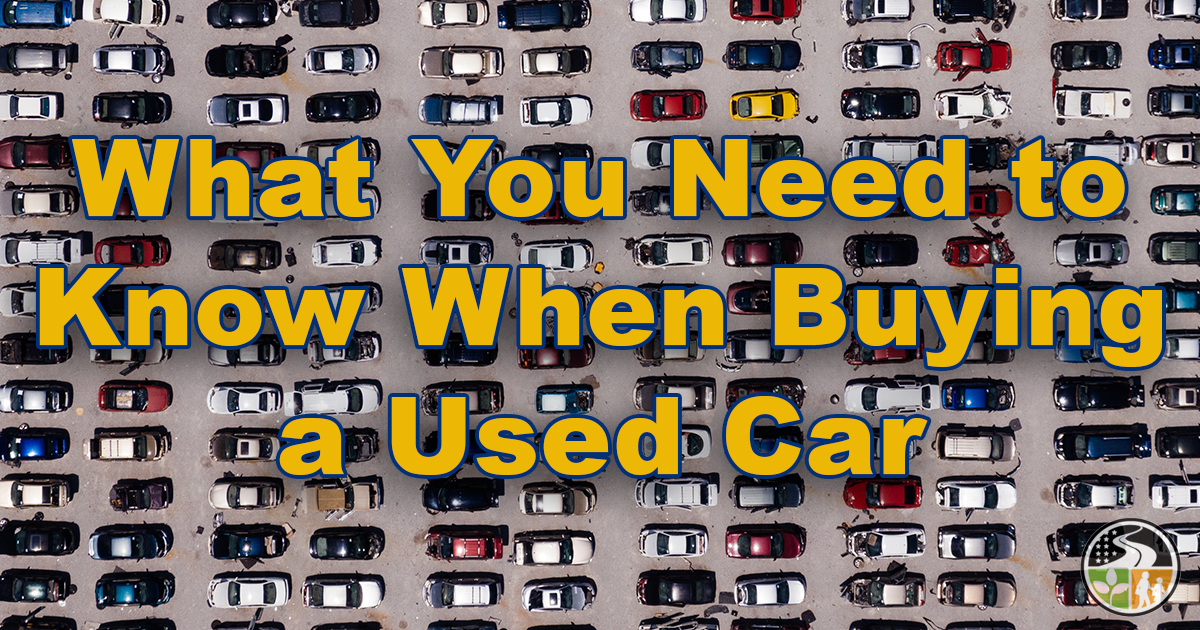What You Need to Know When Buying a Used Car

When you decide to start shopping for a used car, it’s only natural to think about how the vehicle looks. Does it match your personal style? Does it come in your favorite color? However, many vehicle owners have come to regret choosing quickly, only to get stuck with what is commonly referred to in the automotive world as a “lemon.” If you want to feel confident in your long-term happiness with a car, take time to consider all of the important factors before agreeing to a purchase.
Deciding on just the right used vehicle for your needs will take time, a bit of knowledge and a lot of patience. Where should you start?
Determine the price limit
What does this car sell for on the market? You can find out using a resource like the Kelley Blue Book. It will help you see how age, mileage and other details about the vehicle (called “trim level”) affect the average selling price.
Inspect the car
That’s a no-brainer, but what should you look for?
• Check the entire body of the vehicle for dents and scratches. Do you see signs that a “fender bender” was patched up?
• Is there rust on the wheel wells or beneath the doors?
• Does the car stand level, or is it tilted?
• Is the interior of the car in good repair? That can give you a clue as to how well the owner cared for all aspects of the vehicle.
• Do the brake pedals or tires show a lot of wear (even if the odometer says something else)?
Be sure to check the interior and trunk for any signs of water submergence. Hurricanes in recent years have resulted in many flood-damaged cars on the market. If a car has a musty smell or seems to have more rust than usual, be extremely cautious. Water can cause a great deal of hidden damage to various vehicle systems.
Get to know the past
What history does this car have? This requires a bit of sleuthing on your part.
Every vehicle has a unique Vehicle Identification Number (VIN), which is like a fingerprint or a DNA sample for the car. You can use the VIN to research the vehicle’s history online. Among other things, you may be able to determine if the car had more than one owner, how often it was serviced and if it has been involved in any collisions.
How many times has it been around the block?
Just exactly how used is this used car? How did the original owner (or owners) treat the vehicle? Although a shady seller might try to adjust the odometer, you can review the history of the vehicle using the VIN to know the exact number of miles it has run in its lifetime. Those miles can dramatically affect the price and value.
Take it out for a spin
The only way to know what condition the car is in is to take it for a drive. Take it up hills, around curves, on the highway and over some rough roads.
• Can the vehicle get up a hill?
• Does the steering wheel shake?
• How do the brakes respond?
• Is the car noisier than a marching band?
If you see any obvious problems, keep in mind that you’ll have to invest more money in the vehicle. Of course, most people do not automatically know how much certain repairs may cost, so consider taking it for an inspection by a mechanic to get the full story.
- 2026
- 2025
- 2023
- 2022
- 2021
- 2020
- 2019
- 2018
- 2017

